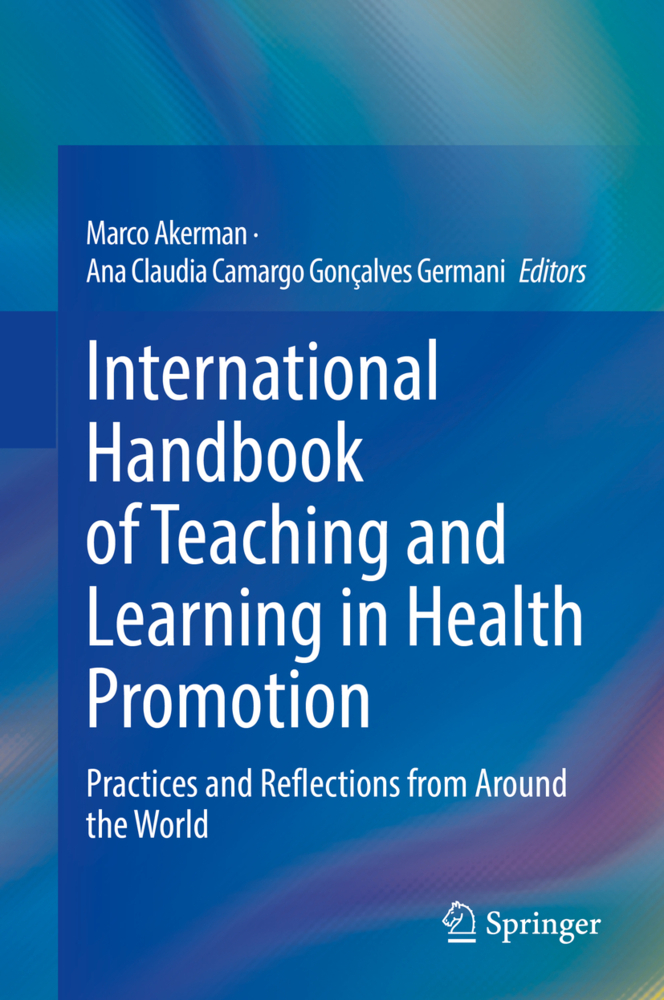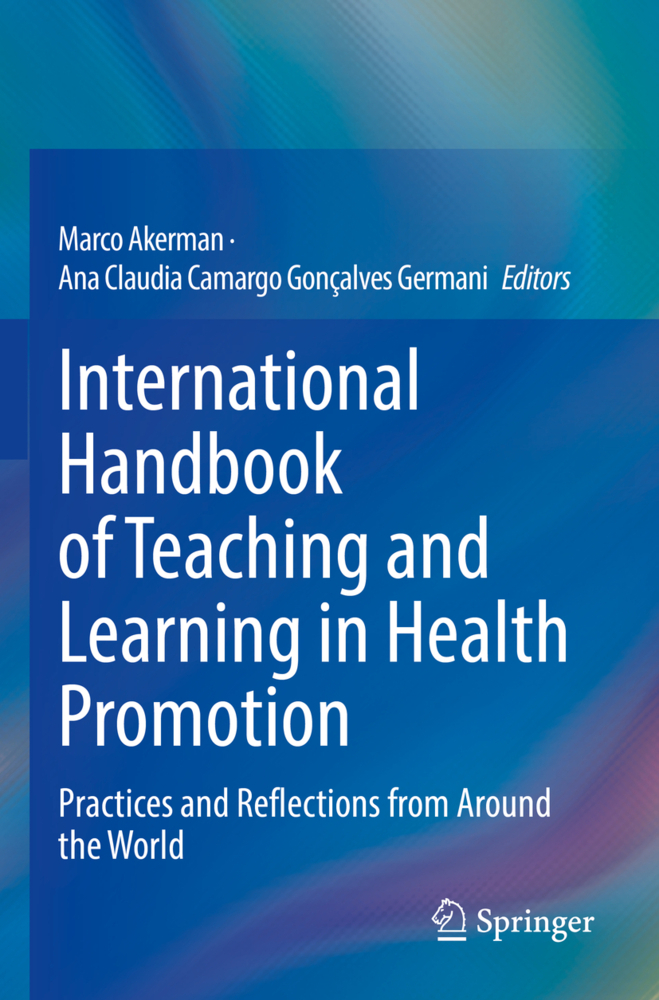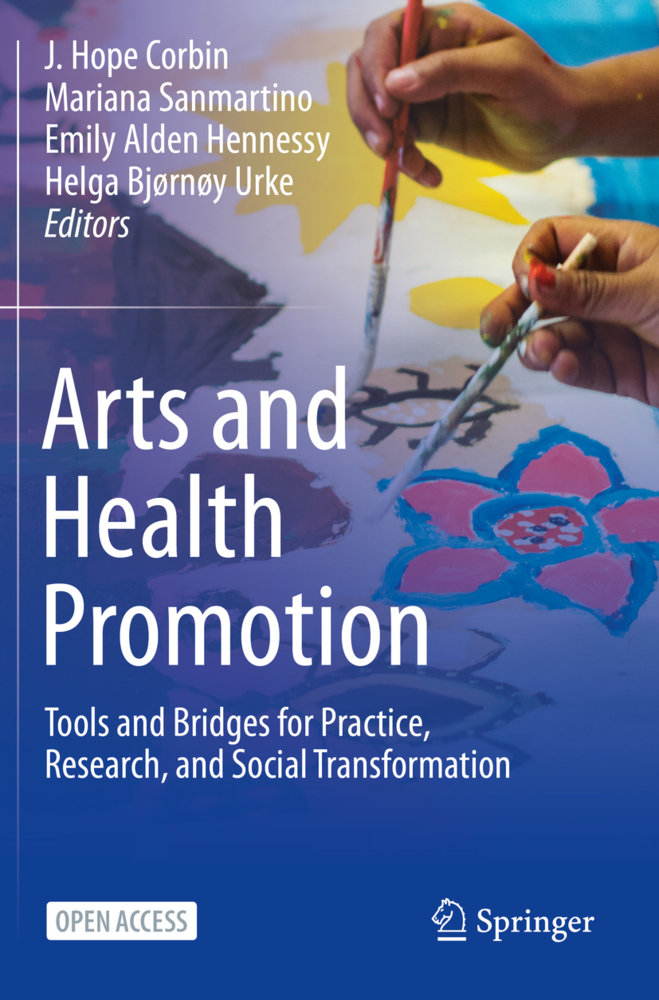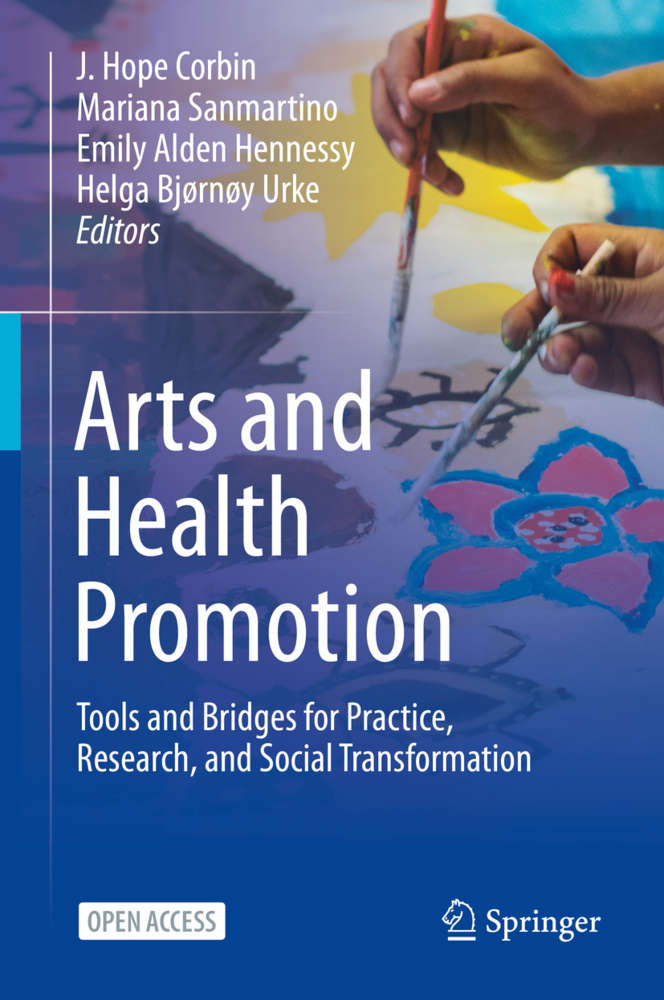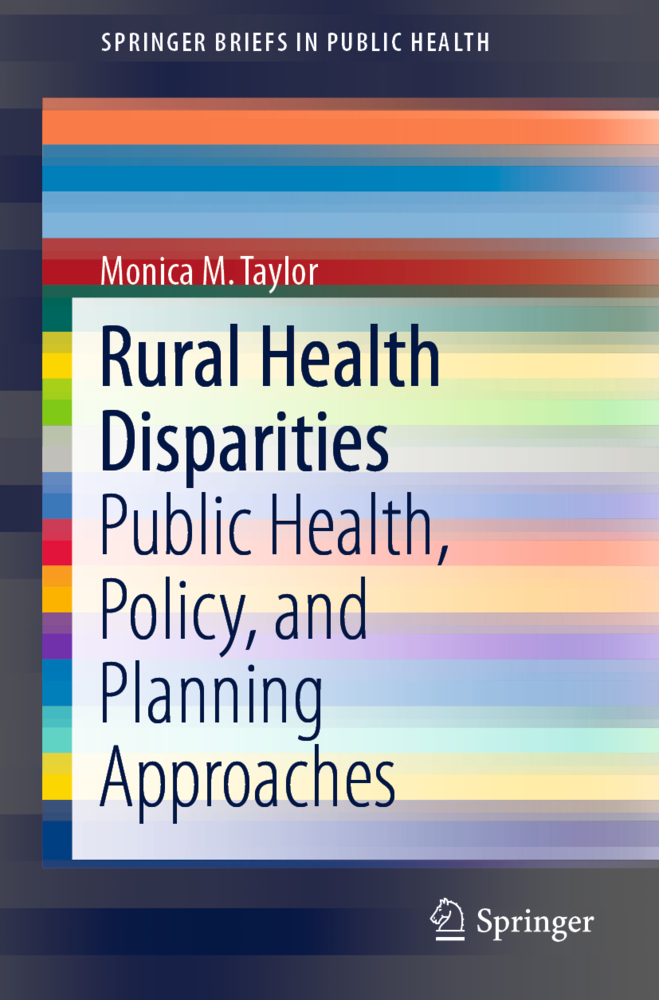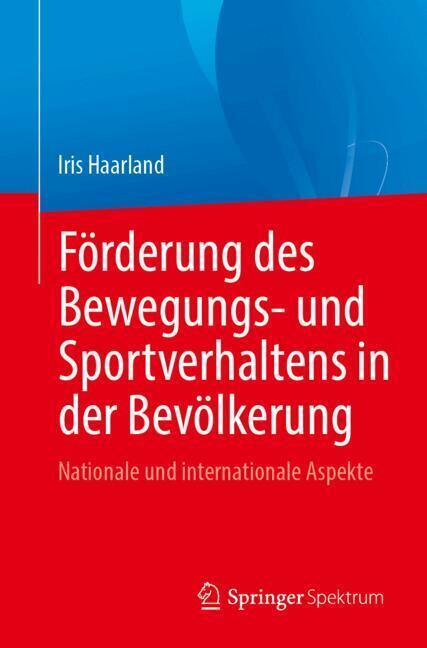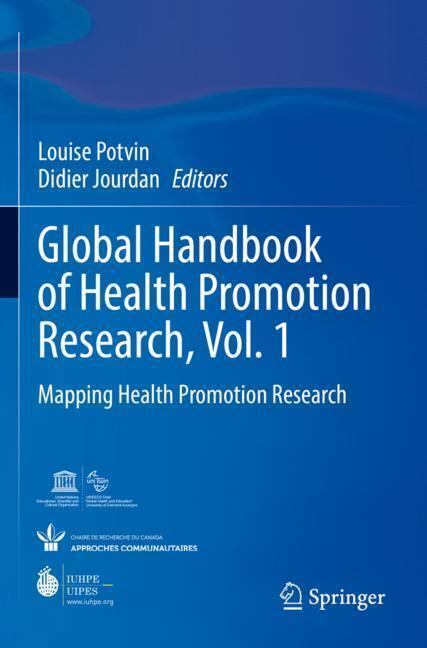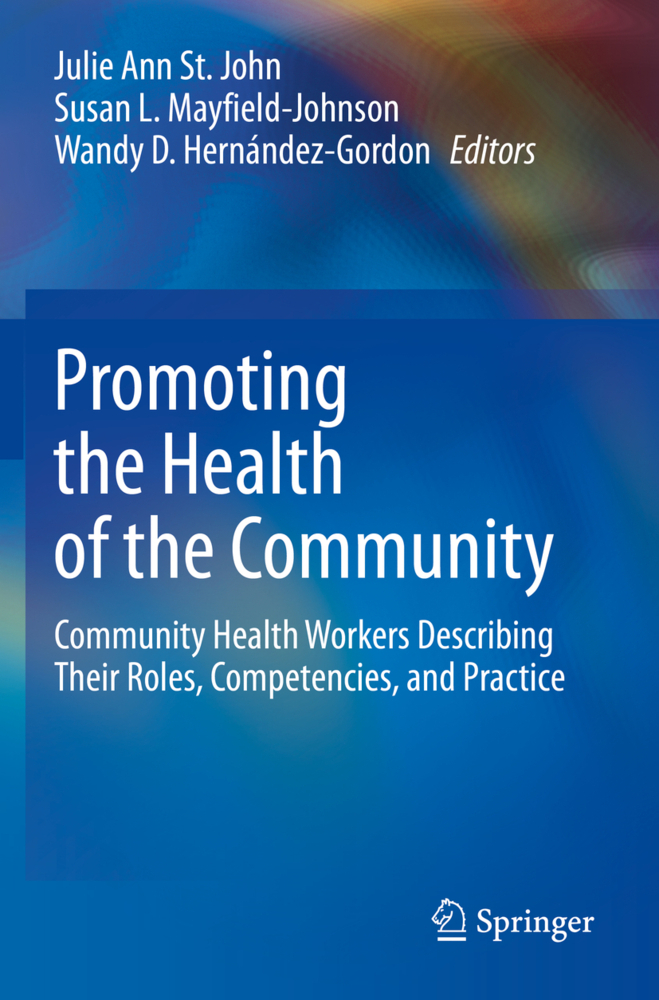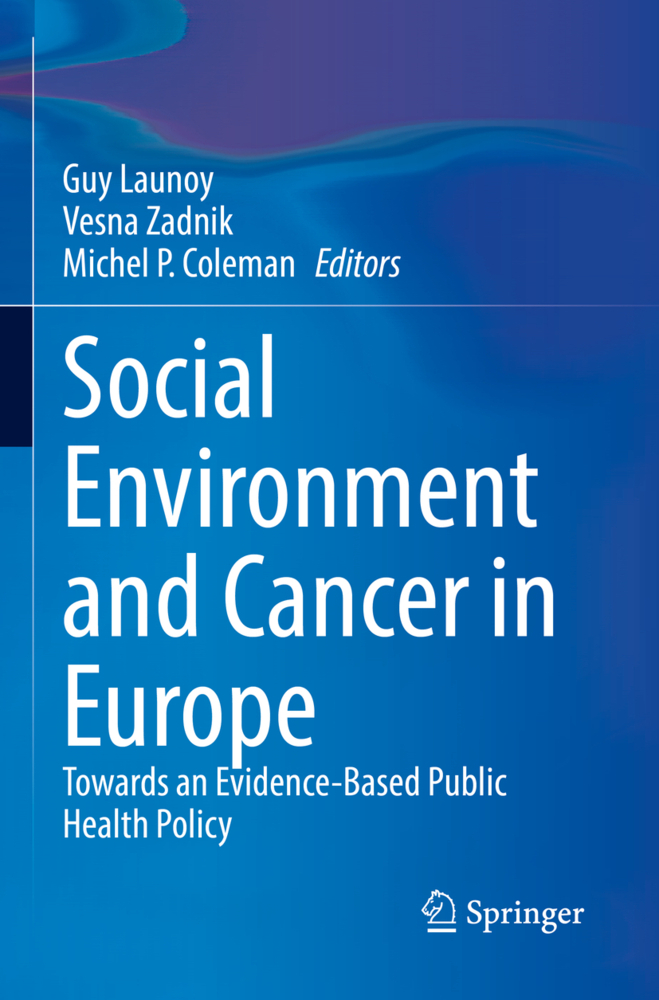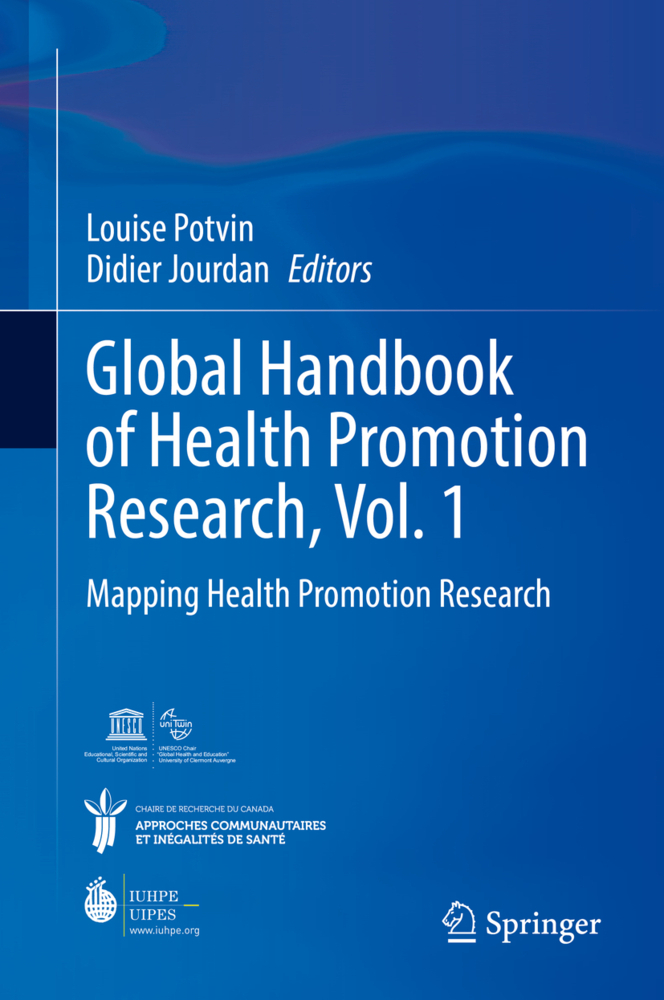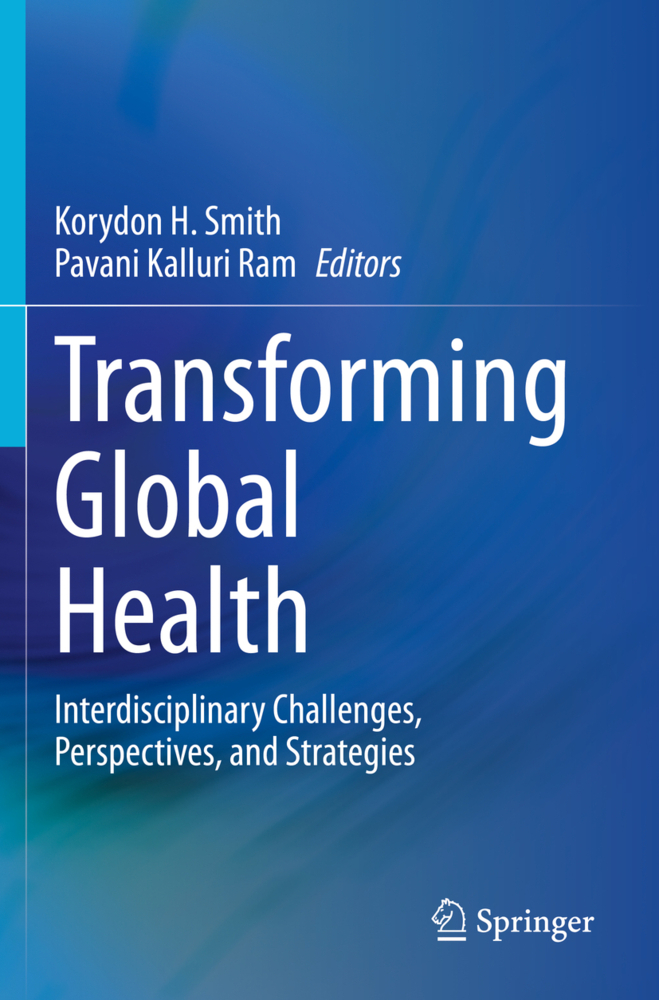International Handbook of Teaching and Learning in Health Promotion
This international handbook brings together researchers and teachers from 25 countries of the five continents to share their experiences of teaching health promotion in undergraduate and graduate courses related to different health professions. Chapter authors share teaching methodologies used in classes, discuss the competencies students need to learn and indicate research opportunities. Readers will be provided with real-world examples of empowering, participatory, holistic, intersectoral, equitable and sustainable teaching/learning strategies that aim to improve health and reduce health inequities.
This handbook was edited by an editorial board formed by 12 members of the International Union for Health Promotion and Education (IUHPE) from seven countries - Brazil, Belgium, Canada, Israel, New Zealand, Taiwan and UK -, and includes 45 chapters organized in seven thematic sections, each one dedicated to a different aspect of the process of teaching and learning health promotion:
- The health promotion curriculum
- Making health promotion relevant to practice
- Pedagogies for health promotion
- Special topics for health promotion
- Health promotion assessment and quality assurance
- Health promotion as a transformational practice
- Students' reflections
The International Handbook of Teaching and Learning in Health Promotion: Practices and Reflections from Around the World aims to encourage a dialogue between teaching and learning practices carried out locally and the possibilities of replicating these experiences globally, recognizing cultural differences and similarities. This handbook is intended for a wide range of readers, including education and training providers, health professionals and health care students. Due to its intersectoral and interdisciplinary approach, it will also be of interest to teachers and students in other fields of the Social Sciences, such as Urban Planning, Social Work, Public Policy, International Relations and Population Studies.
Chapter 1: Introduction to the International Handbook of Teaching and Learning in Health Promotion: What and for whom is it intended?
Section I - The Health Promotion CurriculumChapter 2: Introduction to Section I - The Health Promotion Curriculum
Chapter 3: The First Undergraduate Program in Health Promotion and Prevention in Switzerland: Context, Concept and Challenges
Chapter 4: The first Francophone Africa Online Master Degree Course in Health Promotion: Key Features and Perspectives
Chapter 5: Debates, tensions and alternatives in Health Promotion Education from South-North & South-South cooperation: The Health Promotion and Social Development Master Experience
Chapter 6: The Disappearing Contribution of Universities in the UK to Health Promotion
Chapter 7: Health Promotion Teaching & Learning at University of the Western Cape, South Africa: Thinking Global, Acting Local
Chapter 8: The Health Promotion Curriculum: Evolving and Embedding Competencies in Contemporary Courses
Section II - Making Health Promotion Relevant to Practice
Chapter 9: Introduction to Section II - Making Health Promotion Relevant to Practice
Chapter 10: The Health Promotion Model of Social Care: Development and Application in Pedagogy for Social Care Practice
Chapter 11: Extending Student-Active Learning into Effective Practice in Global Development-Related Health Promotion
Chapter 12: TEIA: Intersectoral Topics and Strategies with Community Health Workers (CHW): Education, Communication and Health Promotion in times of pandemic
Chapter 13: Professional Development in Health Promotion for Family Doctors: Using the "Entrustable Professional Activities" Approach
Section III - Pedagogies for Health Promotion
Chapter 14: Introduction to Section III - Pedagogies for Health Promotion
Chapter 15: Wikis in Micro-Communities: A Collaborative and Relational Learning Tool for Health Promotion
Chapter 16: Innovative Pedagogies in a Health Promotion Specialisation: Knowledge, Practice and Research
Chapter 17: Health Educators Love Reading: Introducing the Journal Club for Life-Long Learning
Chapter 18: Teaching Clinical Skills and Health Promotion Using Clinical Simulations
Chapter 19: Learning Health Promotion from Skateboarders: A Community-Based Practice to Rethink the Academy Teaching Method
Chapter 20: Teaching Health Promotion in Aotearoa: A Tangata Whenua and Tangata Tiriti Perspective
Chapter 21: Training and Participatory Research in Health Promotion Courses: Reflections and Contributions for Knowledge and Experiences
Chapter 22: Method and Strategies in Health Promotion Teaching-Learning: Evidence from a Networked Postgraduate Program in Northeast Brazil
Chapter 23: Pedagogical Experiences in Teaching and Learning Health Promotion in Undergraduate Education
Chapter 24: Using Innovative Curriculum Design and Pedagogy to Create Reflective and Adaptive Health Promotion Practitioners within the Context of a Master ofPublic Health Degree
Chapter 25: Theoretical, methodological, mediatic and evaluative challenges in the teaching-learning of Health Promotion: the use of virtual platforms
Section IV - Special Topics for Health Promotion
Chapter 26: Introduction to Section IV - Special Topics for Health Promotion
Chapter 27: Personalized and Research-Led Teaching as Building Blocks to Success During Pandemic Times in Austria´s Higher Education Sector
Chapter 28: Health Promotion and Integrative and Complementary Practices: Transversality and Competence Development in an Undergraduate Experience
Chapter 29: Teaching Suicide Prevention: Experiences from a Social- Ecological Approach
Chapter 30: Encounters and Narratives: The Insertion of the Socio-Environmental Health in the Perspective of the Health Promotion
Chapter 31: Health Education in Times of Pandemic: Promoting Health Among Indigenous Populations in the Brazilian Amazon
Chapter 32: Health Promotion and Working in/with Groups: An Experience of Interprofessional Training at UNIFESP - Baixada Santista (Brazil)
Section V - Health Promotion Assessment and Quality Assurance
Chapter 33: Introduction to Section V - Health Promotion Assessment and Quality Assurance
Chapter 34: The IUHPE Health Promotion Accreditation System - Development and Experiences of Implementation
Chapter 35: Core Competencies for Health Promotion: Development and Experience in Pedagogy
Chapter 36: Brick by Brick: Building a House of Health Promotion on a Foundation of Political Science Theory
Section VI - Health Promotion as a Transformational Practice
Chapter 37: Introduction to Section VI - Health Promotion as a Transformational Practice
Chapter 38: The Circle of Health - An Interactive Tool to Guide the Process of Transformative Change and Rethinking Health Promotion
Chapter 39: Challenging Oppression in Health Promotion and Developing an Intersectional Framework for Health Promotion in Teaching Health Promotion Through a Distance Learning Module at the Open University
Chapter 40: Teaching and Learning Health Promotion Through Social Participation, Interculturality and Popular Education
Chapter 41: Community-Engaged Education in Health Promotion: Exploring Equity and Ethical Dimensions to Problem-Solving in Community
Chapter 42: Health Promotion in the Region of the Americas: An Educational Innovation Proposal
Chapter 43: Sharing Paths and Converging Learning: A Consortium of Brazilian Health Promotion Graduate Programs
Section VII - Students' Reflections
Chapter 44: Introduction to Section VII - Students' Reflections
Chapter 45: A Student Perspective on Learning and Doing Settings-Based Health Promotion in the Era of TikTok
Chapter 46: The Impact that Learning About Health Promotion had on me. Embracing Health Promotion: A Puerto Rican Metamorphosis.
Akerman, Marco
Germani, Ana Claudia Camargo Gonçalves
| ISBN | 978-3-030-96004-9 |
|---|---|
| Artikelnummer | 9783030960049 |
| Medientyp | Buch |
| Copyrightjahr | 2022 |
| Verlag | Springer, Berlin |
| Umfang | XVIII, 778 Seiten |
| Abbildungen | XVIII, 778 p. 75 illus., 56 illus. in color. |
| Sprache | Englisch |

